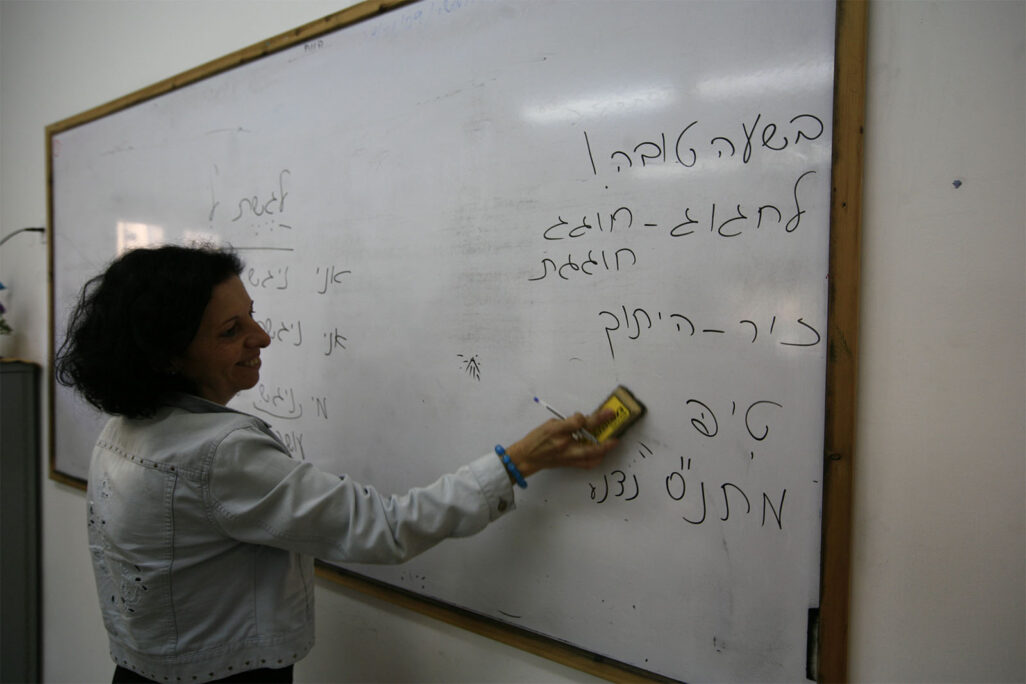
The Ministry of Finance announced earlier this month that teachers in ulpanim (public Hebrew immersion classes for new immigrants) will join the 'New Horizon' salary agreement as part of the Teachers’ Federation this September. The 'New Horizon' agreement is a broad-based reform of the Israeli education system first implemented in 2008, addressing school class sizes, teachers’ contact hours, and salaries. The announcement comes after the Aliyah and Absorption Committee, chaired by MK Oded Forer of the secular right-wing party Yisrael Beiteinu, held 11 discussions on the issue in the last four months.
Last month, ulpan teachers began taking action to protest their exclusion from the 'New Horizon' agreement. In coordination with the Teachers’ Federation, ulpan instructors implemented policies including not opening new classes, not accepting new students, canceling trips, tours and tests, and not handing out completion certificates. A month before these sanctions, the ulpan teachers had already begun protests independently, which shut down some ulpanim and saw a hundred teachers resign in protest.
Last summer, when negotiations were held with the Teachers’ Federation on a new collective agreement, it was decided to hold separate negotiations for the ulpan teachers. Despite a standing agreement that members outside of the 'New Horizons' framework would receive an additional 500 shekels ($138), it was decided that the ulpan teachers would in fact not be recipients. According to the Teachers' Federation, the Ministry of Finance did not actually allocate a budget for this separate agreement.
Meir Asraf, the representative of the Teachers' Federation on the Aliyah and Absorption Committee said:
"There is indeed progress in the negotiations, and the person who is managing it on behalf of the Teachers' Federation is Secretary General Yaffa Ben David. The gaps can be resolved, the Ministry of Finance needs to move in our direction. The pressure on the sector will not make us give up our demands for the benefit of the public ulpan teachers. The meaning of their entering the 'New Horizons' agreement is a route to an immediate salary increase."
Shira Gross, from the salary division at the Ministry of Finance, added: "We are in the process of negotiations, and I cannot list all the details, but I can say that all ulpan teachers are entering into the ‘New Horizons’ agreement starting this September. We expect that in the coming days we will reach agreements."
Maoz Bigon, the director of the Adult Education Division of the Ministry of Education, claimed that a hundred more ulpan teachers are needed to "keep the ulpanim at a reasonable level." In addition, he reported that 60 teachers and eight ulpan managers retired during the current year. As of today there are 53 teachers and 32 ulpan managers.
MK Forer summarized the discussion:
"Ending the ulpan crisis is not the most serious economic issue in the State of Israel. This is a relatively small amount, and if there is goodwill from all parties, the problem can be resolved in a very short period of time. An agreement of approximately 50 million shekels ($14 million) is not a significant event for the government. Today there is a struggle in the developed world for quality personnel. About 1,000 doctors arrived in Israel in the current wave of aliyah, some of them cannot begin to integrate into the labor market because of language difficulties and a lack of available Hebrew classes. The government’s budget is expected to manage policy. Beyond the Zionist value of aliyah, we need to consider what the state gains from teaching Hebrew."
This article was translated from Hebrew by Nancye Kochen.






